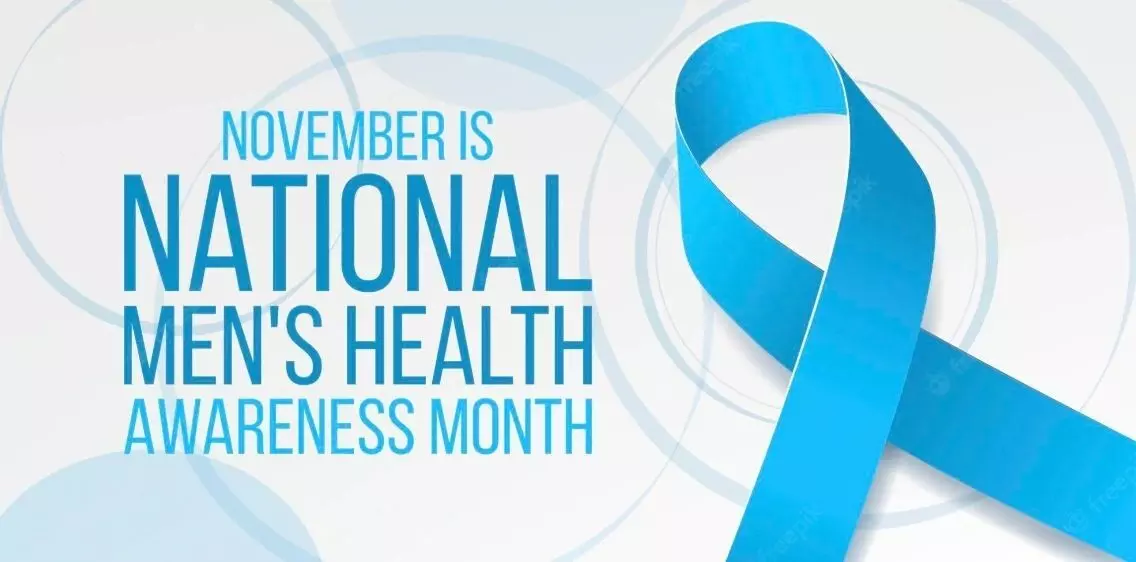Men’s Health Month: Why November calls for conversations on mental and sexual well-being

Every November, something quietly powerful happens across the world — men begin to grow moustaches not just for fashion, but for a cause. This symbolic gesture is part of the Movember movement, a worldwide campaign that raises awareness on men’s health — both physical and mental — and encourages conversations that many men would never start on their own.
More Than a Moustache: The Meaning of Movember
The Movember campaign was initiated in 2003, in Australia, when two friends decided to bring back the moustache as a purpose — and that purpose was not about style, but rather as a statement of solidarity. What started with 30 men, has grown into a global phenomenon, operating in over 20 countries, funding thousands of men’s health programs.
Movember is fundamentally rooted in awareness and action. It encourages men to think about important health issues: prostate cancer, testicular cancer, mental health, and suicide prevention. Conversationally, the moustache serves as an effective component, a straightforward method to remind us that men’s health is matter and that silence can kill.
Breaking the Silence around Men’s Health
Although the medical field has evolved, men are generally slower to seek help or engage in preventive screenings. Studies confirm that men visit doctors less often than women and are more likely to ignore early warning signs. The belief that strength equals silence still exists for many — a cultural mind-set that discourages vulnerable emotions.
However, the real strength lies in self-awareness. Taking responsibility for well-being — arranging a physician’s appointment, addressing stress, or seeking support in a mental health difficulty — is not a sign of weakness. It is an act of bravery that provides protection for not only that person but for family and communities that count on them.
Prostate and Testicular Health: Awareness Can Save Lives
Prostate and testicular cancers are two of the prominent areas of men's health issues that Movember aims to raise awareness of. Prostate cancer is the second most common cancer in men; it is typically found in men over 50. Simple tests like the PSA (Prostate-Specific Antigen) test allow for early detection, which can change the course of life. Symptoms, such as frequent urination, weak urine stream, or pelvic pain, should never be ignored.
Although not very common, testicular cancer affects young men usually between 15 and 35 years old. It is one of the most treatable cancers in the very early stages, which is why it's important to conduct self-exams every month. Men should check for lumps, swelling, or spots that feel abnormally firm, and they should see a doctor right away if something feels off. Awareness and self-exams can save lives, literally.
The Unspoken Battle: Men’s Mental and Sexual Health
In addition to physical health conditions, mental health remains a significant yet often unnoticed challenge for men. All over the world, men are more likely than women to die by suicide. Men are conditioned to simply "tough it out" and therefore, depression, anxiety, and stress often go unrecognised. However, suppressing emotions only adds to distress. It is important to recognise signs of distress, both for oneself and for others, such as withdrawal, irritability, sleep problems, or loss of interest in activities.
Sexual health, likewise, deserves an open conversation. Health issues such as erectile dysfunction or low testosterone are not just physical conditions; they can also be early signs of heart disease or hormonal imbalance. These conditions also impact mental health and self-esteem. It should be normal, not taboo, to ask for medical advice about these issues.
Taking Small Steps, Making Big Changes
Movember is not exclusively about growing a moustache. It is about encouraging conversations, scheduling health checks, supporting friends, and spreading the word.
Here is how everyone can get involved:
Men: Schedule your annual health screenings, and remember to speak openly about your mental wellness.
Friends and Families: Help keep the men in your life healthy, just asking “How are you doing, really?” can help make a difference.
Communities: Create a non-judgemental, safe place, where men can freely talk about their struggles.
Redefining Strength This November
November teaches us that "having strength" doesn’t mean suffering silently or being tough — it means taking control of your health, body, and mind. Men who take responsibility for their mental, sexual, and physical health not only live longer, but also healthier, more enriching lives.
So, whether you grow a moustache or just talk openly about your health, or simply book that overdue check-up, remember each little bit matters. For when men take charge of their health, physical, mental, and emotional, they're not just helping their own health; they're building the backbone of their families, communities, and future generations.
The writer is a Men’s Health & Andrology Expert | Founder, IASH (Institute of Andrology and Sexual Health)



